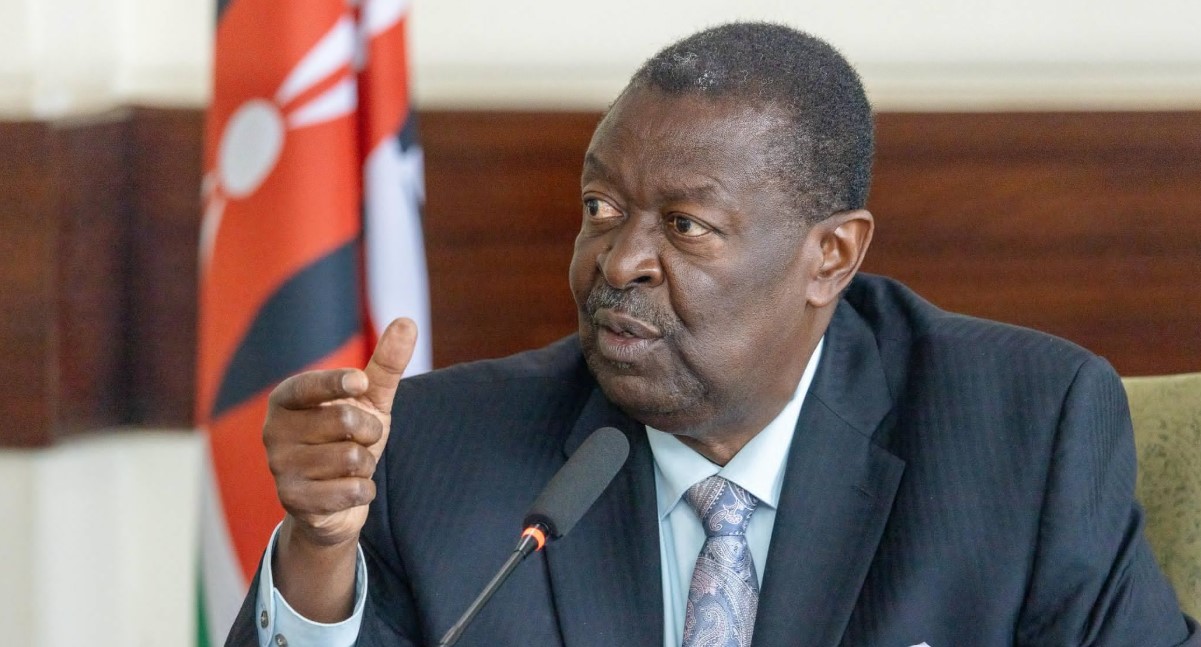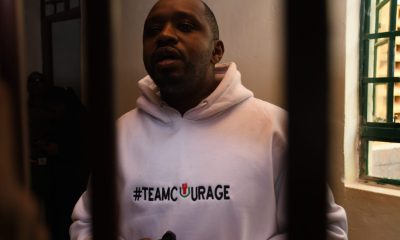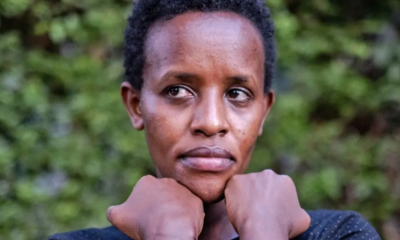Politics
Mudavadi on Why Kenya Remained ‘Silent’ in Tanzanian Detention Row

Kenya’s Prime Cabinet Secretary Musalia Mudavadi has defended the government’s measured response to the detention of activist Boniface Mwangi in Tanzania, explaining why Nairobi chose cooperation over confrontation despite public outcry.
In a statement released Friday, Mudavadi addressed mounting criticism over Kenya’s seemingly muted reaction to Mwangi’s detention by Tanzanian authorities, which had sparked widespread online outrage and calls for diplomatic intervention.
Mudavadi revealed that Kenya’s cautious approach was driven by significant economic considerations, with Tanzania serving as a crucial trading partner and host to approximately 250,000 Kenyan citizens.
“Tanzania ranks sixth among Kenya’s export destinations, accounting for 23 percent of our exports to the East African Community market,” Mudavadi explained, citing 2025 Economic Survey data.
The country also stands as Kenya’s ninth-largest source of imports and second-largest trading partner in Africa after South Africa.
The manufacturing sector, which employed 369,200 Kenyans in 2024, heavily depends on regional exports, with Uganda taking the lead at 43 percent of EAC market exports.
Defending the government’s diplomatic strategy, Mudavadi emphasized that Kenya and Tanzania share “long-standing diplomatic ties, including non-interference in each other’s internal affairs.”
“The path to resolution lay not in confrontation, but cooperation,” he stated.
“Our engagement with Tanzania was guided by mutual respect, discretion and the shared understanding that there is a deep bond between our peoples.”
The Prime Cabinet Secretary argued that while online activism can raise awareness, “it cannot replace the structured dialogue that preserves our bilateral ties and respect for each other’s sovereignty.”
Balancing individual rights and national interests
Addressing criticism that the government had abandoned Mwangi, Mudavadi acknowledged Kenyans’ constitutional rights while urging restraint in their exercise.
“Our constitution guarantees the rights of the individual, but those rights must not overshadow the interests of the millions of other citizens,” he said, emphasizing the government’s obligation to protect the livelihoods of Kenyans working in neighboring countries.
Mudavadi confirmed that the matter involving Mwangi had been “resolved amicably” through established diplomatic channels, though he provided no details about the resolution process.
The statement underscored Kenya’s dependence on regional relationships for economic prosperity, with Mudavadi warning against isolation.
“No nation prospers in isolation. Kenya’s development is anchored in strong economic ties and strategic partnerships with our neighbours,” he said, referencing the recently published 2025 Economic Survey.
The diplomatic incident highlights the delicate balance Kenya must maintain between protecting its citizens’ rights abroad and preserving crucial economic relationships that underpin domestic employment and trade.
Mudavadi urged Kenyans to “see the bigger picture” and recognize that the country’s “prosperity, peace and future depend on our ability to build bridges and nurture them in the national interest.”
The statement comes as Kenya continues to navigate complex regional dynamics while managing domestic expectations for more assertive diplomatic positions on human rights issues.
Kenya Insights allows guest blogging, if you want to be published on Kenya’s most authoritative and accurate blog, have an expose, news TIPS, story angles, human interest stories, drop us an email on [email protected] or via Telegram
-

 Grapevine6 days ago
Grapevine6 days agoAlleged Male Lover Claims His Life Is in Danger, Leaks Screenshots and Private Videos Linking SportPesa CEO Ronald Karauri
-

 Lifestyle1 week ago
Lifestyle1 week agoThe General’s Fall: From Barracks To Bankruptcy As Illness Ravages Karangi’s Memory And Empire
-

 Grapevine2 days ago
Grapevine2 days agoRussian Man’s Secret Sex Recordings Ignite Fury as Questions Mount Over Consent and Easy Pick-Ups in Nairobi
-

 Investigations2 weeks ago
Investigations2 weeks agoEpstein Files: Sultan bin Sulayem Bragged on His Closeness to President Uhuru Then His Firm DP World Controversially Won Port Construction in Kenya, Tanzania
-

 News2 weeks ago
News2 weeks agoAUDIT EXPOSES INEQUALITY IN STAREHE SCHOOLS: PARENTS BLED DRY AS FEES HIT Sh300,000 AGAINST Sh67,244 CAP
-

 Business2 weeks ago
Business2 weeks agoKRA Can Now Tax Unexplained Bank Deposits
-

 Investigations1 week ago
Investigations1 week agoEpstein’s Girlfriend Ghislaine Maxwell Frequently Visited Kenya As Files Reveal Local Secret Links With The Underage Sex Trafficking Ring
-

 News1 week ago
News1 week agoState Agency Exposes Five Top Names Linked To Poor Building Approvals In Nairobi, Recommends Dismissal After City Hall Probe



























